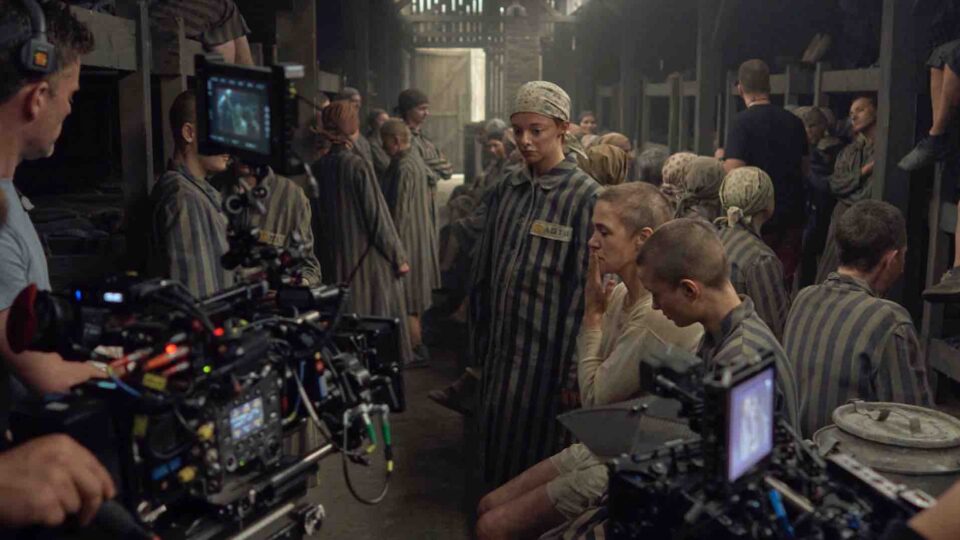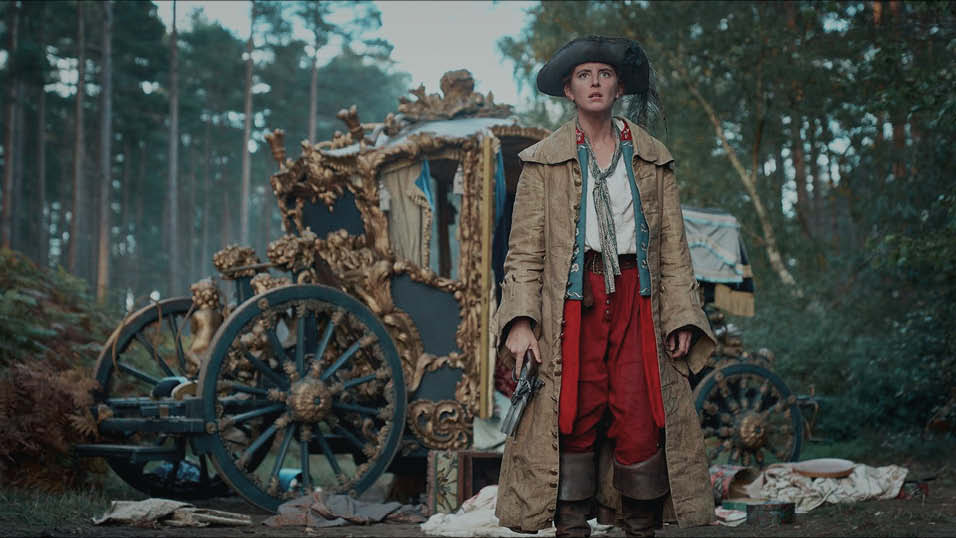There’s plenty to consider when it’s time to invest in expensive new kit, beyond whether it is has the right specifications for the job. For many, a key priority will not just be the quality of a camera or the versatility of an editing system, but how best to finance the purchase.
If you are fortunate enough to have a reasonably healthy bank balance, it might seem obvious to go ahead and purchase new kit upfront. But it is not necessarily the case. Buying outright is a good option if you have the capital available, or if it is essential that you own the equipment.
But other options, such as lease purchase (HP) or finance leasing, see a finance company buy the kit for your business to use in return for regular payments over a fixed period. These smaller payments will leave you with cash in the bank, but because you pay interest on the instalments, you will pay more for the goods in the long run.
Specialist finance companies in the broadcast sector include Azule Finance, Clockwork Capital, Paragon Bank Technology Finance and Medialease.
For example, Clockwork has, so far this year, funded projects including equipment and vehicles for a large-scale production in the Highlands; an IT refresh for a creative technology studio; a refurbishment loan for a facility move; camera bodies and lenses for a rental company; and cash flow finance for a company with a short term hiatus.
Medialease, meanwhile, has traditionally funded the post production business and some of the larger and mid-sized OB and TV/ Film production companies. It has also become more involved in the audio visual installation market, and the equipment intensive end of the live market for West End theatre shows, festival and music concerts.
Finance companies argue that it often makes sense to use lease purchase or finance leasing for kit, spreading payments to ease cash flow. The cash buffer in the bank could help your company if it ventures into choppy waters down the line.
Freeing up working capital also allows companies to invest in their businesses more effectively, particularly on development and new opportunities.
Geradine Scher, managing director of Clockwork Capital, says: “The maxim “cash is king” can refer to the balance sheet or cash flow of a business and having cash on hand is normally a positive sign, with a strong cash flow allowing a company more flexibility in regards to making business decisions and potential investments, such as key hires or even acquisitions, as well as being able to cover operational costs over a period of time, to hedge against any downturn in business. By hanging on to cash and utilising leasing when purchasing large value capital items you get immediate access to the equipment you need while easing cashflow and taking advantage of available tax benefits.”
Paul Robson, managing director of Medialease, adds: “It’s a question of cash flow and best use of it. Many customers we deal with have excellent cash flow and particularly good monies on deposit, but they might not wish to tie up that cash on buying assets that could easily be financed (at currently still very good interest rates generally). This enables them freedom to conserve cash reserves for potential other non-asset based requirements – expansion of premises, new premises investment / warehouse alterations, or simply in reserve for future tax payments or purchase of another company.”
From a management perspective, leasing simplifies budgeting because it offers a set payment every month. Monthly payments are fixed throughout the term regardless of what happens to interest rates or inflation. Leasing also allows you have access to the latest equipment or technology, which is particularly useful when technology is changing so fast.
If you decide to go down this route, there are multiple options available from finance companies. The two most common in the production sector are lease purchase (HP) and finance lease.
Lease purchase involves paying for the equipment in instalments over an agreed term after which the item is yours. A finance lease gives you the option to either return the equipment at the end of the lease period, continue renting it at a further reduced cost or selling the equipment on behalf of the financier whereby you retain a pre-agreed percentage of the sale proceeds.
There are a number of additional leasing options too, including an operating lease, where you lease the equipment for as long as you need it rather than a fixed period. The ownership then returns to the leasing company. Furthermore, there’s a contract lease option, which is similar to the operating lease but also includes maintenance cover.
Which of the above options you choose depends on whether you want to own the product at the end of the lease agreement. Different types of contracts also have different accounting, tax and VAT implications – which would be worth discussing in more detail with your accountant before proceeding.
Scher comments: “Finance leases enable the VAT element to be cashflowed along with the rentals on a monthly basis. Some of our technology funders are now favouring operating leases once again, which can provide significant cashflow and tax advantages to lessees, particularly if they want to refresh their equipment on a regular basis.”
In return for their investment, finance companies will want to see as much financial information as possible, plus clear evidence of the business rationale for your investment. Says Clockwork’s Scher: “Every deal is different and Clockwork has no hard and fast criteria because as a niche funder as well as broker to mainstream funders we are always prepared to look outside of the box to find a way of helping clients, but it is important to us that we meet with clients face to face. We work with start-ups, early stage and long-established businesses, finding them the best funding options to meet their specific needs.”
Medialease’s Robson adds: “As an intermediary and not the primary lender, we take all sorts – from new start companies to major PLC and VC backed companies. We fund the widest spectrum as we are not restricted to one bank / one decision maker.“
A specialist financier who knows the industry can make the documentation process run a lot more smoothly than approaching a bank direct, as well as providing advice about the best options to take.
Robson says: “On a larger deal, over say £200k, we know we can compete with the client’s bank and often provide a quicker and easier service for the same rates, if not slightly more competitive on the right terms and equipment. However for the much smaller companies and new start companies we will structure the deal to suit the customer – so if there is little or no deposit available or perhaps they are looking at a relatively large investment for the size of the company or size of their balance sheet, we can structure a deal that a traditional lender just can’t get to.”
Interest rates can vary from a few percentage points above the Bank of England’s base rate through to the mid-teens. The size of a deposit will also vary, ranging from 0% to 30%, and often depends on the perceived risk profile of your business to the lender.
Says Robson: “We have large post production and OB clients, turning over in excess of £10m per annum who we are providing funding to at under 2.5% flat rate and others at over 8% flat (equivalent to a spread of 4.5% to 17% across the spectrum of clients on an inherent % rate basis). It all depends on the strength and weaknesses of a customer, the size of the opportunity and the specific assets they are looking for us to buy.”
LEASING CASE STUDIES
John Rogerson, CEO
Halo Post
What were you looking to invest in?
“Halo have done a great deal of spending over the past 12-18 months. The sharp rise in demand for UHD/4K delivery has necessitated a significant infrastructure upgrade. We always buy the best we can afford, it simply makes good sense – but it can be expensive. We’ve added a VFX department, a VR team, another 5.1 audio suite (our 8th), several online suites, a further grading suite… and another new building, our 4K finishing hub. So it was an expensive period.”
Why did you choose to lease rather than buy? “The reason for leasing as opposed to buying is simple. It spreads the cost of big ticket items over a number of years and makes it possible to buy the things you need, when you need them. Our reputation is built on being technically ahead of the game and creatively first-class so we don’t take chances on our infrastructure.”
Which company arranged the lease? ”Geraldine Scher at Clockwork Capital. We came across Geraldine in 2009 and have since become good friends. Geraldine played a big part in Halo’s success by taking a chance on us when we were smaller. We’ve stuck together ever since.”
Mike Georgiou, CFO
Goldcrest
What were you looking to invest in? “In 2013 we began an investment and recruitment program to increase the number of services that we offer to drama and feature clients and transform the UK post production business into the UK’s leading one-stop-shop for audio and digital intermediate services. In May we opened Theatre 1, central London’s largest sound mixing theatre.”
Why did you choose to lease rather than buy? “Leasing is a much better use of the company’s working capital, especially given the scale of what we set out to do. Although there is an increase in the overall cost of the equipment, leasing allows us to spread the cost of that equipment over the time that it is used.”
Which company helped to arrange the lease? “Medialease. Paul, Simon, Ali and Kelly are a fantastic team to work and have been a great help to us over the years.”
Jon Howarth, Director
Shoot Blue
What were you looking to invest in? “A set of Cooke Anamorphic /i lenses which cost approximately £100k.”
Why did you choose to lease rather than buy? ”With the level of investment combined with the long life expectancy of these lenses, it makes sense to spread the cost of the investment over a long period to maintain our cash flow for other expenditure.”
Which company helped to arrange the lease? ”Azule Finance. We have worked with Azule for many years. They have a great understanding of the equipment and the industry.”
Helen Cardrick
CCO,
Procam group
What were you looking to invest in? “Our recent assets purchase of the camera side of Take 2.”
Why did you choose to lease rather than buy? ”Due to the significant financial commitment, we chose to lease – and negotiating a three year term lease also provides us with good visibility of future cash flows.”
Which company helped to arrange the lease? ”Paragon Bank Technology Finance because of their excellent customer service, in-depth industry knowledge and ability to access particularly competitive rates.”
Tim Dams
Share this story

















